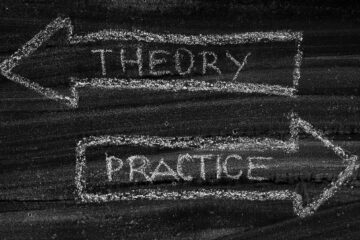Cross-posted at Education Week
An interesting story appeared on the op-ed page of the New York Times on July 22. In it, Sandeep Jauhar, a cardiologist, tells a story of accountability gone awry. It seems that a number of states got a bright idea a while back. Keep track of the success rate for surgeons and publish the results. Good surgeons will show high success rates and the demand for their services will take off. Bad ones will compile lousy statistics and they will find work hard to get. Good idea…right?
Well, maybe not so good. A study published in the Journal of Political Economy, another published in the New England Journal of Medicine and a number of other studies showed that things did not work out as the state policymakers had hoped.
Surgeons can choose to operate and they can choose not to operate. Very good surgeons who are confident of their skills and eager to help their patients will often take on cases that more faint-hearted and less competent surgeons will take a pass on. Not anymore, at least not in the states with the new policy. Surgeons widely acknowledged to be some of the most competent in the business changed their behavior when the new policies came in, adopting the much more cautious behavior of their less competent colleagues. Because they had been in the habit of taking on more risky and difficult cases, they would look bad in the statistics even though they are superior doctors. The result: many patients whose presenting cases required much more expert help and whose outcomes were less certain found themselves unable to get a surgeon to operate on them. Most surgeons stuck to the more routine cases.
Do you see any parallels to schools and teachers here? I do.
The priests of value-added methods of teacher evaluation—basing teacher evaluations to a considerable degree on the performance of their students on standardized tests—thought that gathering these statistics on the performance of a teacher’s students and then publishing the results would reward the good teachers and punish the bad ones.
But suppose that you are a first-rate teacher with a strong social conscience who wants to spend her life teaching the struggling students who need her most. You’ve worked in one of the top suburban school districts in the United States and walked away with all the accolades. But that is not what you want to do with the rest of your professional life. So, to the surprise of many of your colleagues, you sign up to teach in a down-and-out district in the inner suburbs, one with a very high proportion of kids on free and reduced price lunch. And that move proves deeply satisfying, because you know you are making a bigger difference for those kids than you ever made for the much more advantaged kids you used to teach.
And then you get the news about the new teacher evaluation system. And you see how it operates. You have a really good friend who is teaching history whose evaluation is based on the scores that her students get on the state English literacy and mathematics courses and you see how frustrated and angry she is at that. But your real concern is what will become of you. You knew when you came to this school that the principal was not a very good leader, that morale was pretty low among the teachers, that the kids’ parents were moving all the time because they could not pay the rent and so half of the students that you started with would not be there at the end of the year. Your principal assigned you to some of the most challenging classes in the school, all of them classes in the grades that were measured by the state accountability tests. He did that because he wanted the best shot he could get at keeping the schools’ scores out of the basement.

You have to work much harder than you ever did in the upscale district you used to teach in, and often all you are able to accomplish is to keep kids in school who would otherwise have dropped out. Your students’ scores on the state tests may not go up much, but you know what you have done for a number of these kids has spelled the difference between a chance for a future and none at all.
But you realize now that what all of this effort amounted to is that you have been set up for failure. And, sure enough, when the scores came out, your rating was very low. You felt you had no choice. You got out. It was too late to go back to your old district and other districts would not want you because of the rating you had just gotten from the district you had been working for. The most experienced teachers in your school saw what had happened to you and used their seniority rights of assignment to avoid working in schools like the one you had chosen, the schools serving the neediest students.
Word got around. An article about what had happened to you appeared in the city paper. The dean at the local university, a friend, told you that she had heard from high school graduates who were planning to become teachers that, seeing what had happened to you, they chose another career.
The great surgeon begins to avoid the tough cases. The great teacher decides it is too risky to take on the kids who need her most. Accountability systems gone awry.





